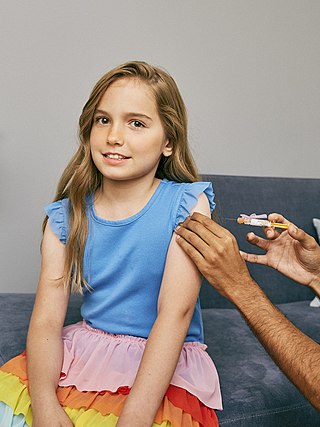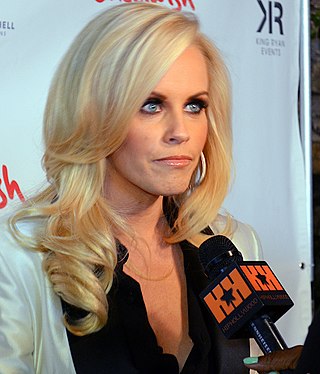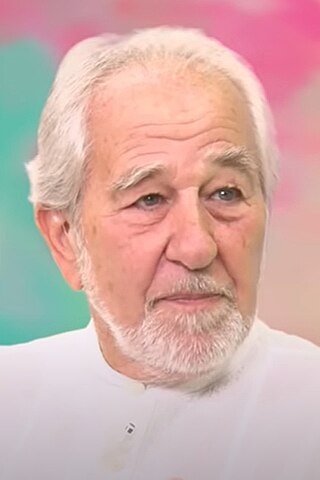
Vaccination is the administration of a vaccine to help the immune system develop immunity from a disease. Vaccines contain a microorganism or virus in a weakened, live or killed state, or proteins or toxins from the organism. In stimulating the body's adaptive immunity, they help prevent sickness from an infectious disease. When a sufficiently large percentage of a population has been vaccinated, herd immunity results. Herd immunity protects those who may be immunocompromised and cannot get a vaccine because even a weakened version would harm them. The effectiveness of vaccination has been widely studied and verified. Vaccination is the most effective method of preventing infectious diseases; widespread immunity due to vaccination is largely responsible for the worldwide eradication of smallpox and the elimination of diseases such as polio and tetanus from much of the world. According to the World Health Organization (WHO), vaccination prevents 3.5–5 million deaths per year. A WHO-funded study by The Lancet estimates that, during the 50-year period starting in 1974, vaccination prevented 154 million deaths, including 146 million among children under age 5. However, some diseases have seen rising cases due to relatively low vaccination rates attributable partly to vaccine hesitancy.

Vaccine hesitancy is a delay in acceptance, or refusal, of vaccines despite the availability of vaccine services and supporting evidence. The term covers refusals to vaccinate, delaying vaccines, accepting vaccines but remaining uncertain about their use, or using certain vaccines but not others. Although adverse effects associated with vaccines are occasionally observed, the scientific consensus that vaccines are generally safe and effective is overwhelming. Vaccine hesitancy often results in disease outbreaks and deaths from vaccine-preventable diseases. Therefore, the World Health Organization characterizes vaccine hesitancy as one of the top ten global health threats.
Generation Rescue is a nonprofit organization that advocates the scientifically disproven view that autism and related disorders are primarily caused by environmental factors, particularly vaccines. The organization was established in 2005 by Lisa and J.B. Handley. Today, Generation Rescue is known as a platform for Jenny McCarthy's autism related anti-vaccine advocacy.
The National Vaccine Information Center (NVIC), founded under the name Dissatisfied Parents Together (DPT) in 1982, is an American 501(c)(3) organization that has been widely criticized as a leading source of fearmongering and misinformation about vaccines. While NVIC describes itself as the "oldest and largest consumer-led organization advocating for the institution of vaccine safety and informed consent protections", it promotes false and misleading information including the discredited claim that vaccines cause autism, and its campaigns portray vaccination as risky, encouraging people to consider "alternatives." In April 2020, the organization was identified as one of the greatest disseminators of COVID-19 misinformation on Facebook.
Concerns about thiomersal and vaccines are commonly expressed by anti-vaccine activists. Claims relating to the safety of thiomersal, a mercury-based preservative used in vaccines, are refuted, but still subject to fearmongering, notably claims it could cause neurological disorders such as autism, leading to its removal from most vaccines in the US childhood schedule. This had no effect on the rates of diagnosis of pervasive developmental defects, including autism. Extensive scientific research shows no credible evidence linking thiomersal to such conditions.
A vaccine adverse event (VAE), sometimes referred to as a vaccine injury, is an adverse event believed to have been caused by vaccination. The World Health Organization (WHO) refers to Adverse Events Following Immunization (AEFI).

Jennifer Ann McCarthy-Wahlberg is an American actress, model, and television personality. She began her career in 1993 as a nude model for Playboy magazine and was later named their Playmate of the Year. McCarthy then had a television and film acting career, beginning as a co-host on the MTV game show Singled Out (1995–1997) and afterwards starring in the eponymous sitcom Jenny (1997–1998), as well as films including BASEketball (1998), Scream 3 (2000), Dirty Love (2005), John Tucker Must Die (2006), and Santa Baby (2006). In 2013, she hosted her own television talk show The Jenny McCarthy Show, and became a co-host of the ABC talk show The View, appearing on the program until 2014. Since 2019, McCarthy has been a judge on the Fox musical competition show The Masked Singer.
Claims of a link between the MMR vaccine and autism have been extensively investigated and found to be false. The link was first suggested in the early 1990s and came to public notice largely as a result of the 1998 Lancet MMR autism fraud, characterised as "perhaps the most damaging medical hoax of the last 100 years". The fraudulent research paper, authored by Andrew Wakefield and published in The Lancet, falsely claimed the vaccine was linked to colitis and autism spectrum disorders. The paper was retracted in 2010 but is still cited by anti-vaccine activists.

Andrew Jeremy Wakefield is a British fraudster, discredited academic, anti-vaccine activist, and former physician.

Autism's False Prophets: Bad Science, Risky Medicine, and the Search for a Cure is a 2008 book by Paul Offit, a vaccine expert and chief of infectious diseases at Children's Hospital of Philadelphia. The book focuses on the controversy surrounding the now-discredited link between vaccines and autism. The scientific consensus is that no convincing scientific evidence supports these claims, and a 2011 pharmacotherapy journal article described the vaccine-autism connection as "the most damaging medical hoax of the last 100 years".

Bruce Harold Lipton is an American writer and lecturer whose work has been dismissed by some peers as pseudoscience. By his own admission, his ideas have not received attention from mainstream science. He has not published original scientific research in a peer-reviewed medical journal in 30 years.
Warnings About Vaccination Expectations NZ (WAVESnz), formerly the Immunisation Awareness Society (IAS), is a New Zealand anti-vaccination lobby group.
Robert William Sears, known as Dr. Bob, is an American pediatrician from Capistrano Beach, California, noted for his unorthodox and dangerous views on childhood vaccination. While Sears acknowledges the efficacy of vaccines—for instance, he supports the claim that Chicken pox, measles, whooping cough, polio, diphtheria have all disappeared because of vaccines—he has proposed alternative vaccination schedules that depart from accepted medical recommendations. His proposals have enjoyed celebrity endorsement but are not supported by medical evidence and have contributed to dangerous under-vaccination in the national child population. While he denies being anti-vaccine, Sears has been described by many as anti-vaccine and as a vaccine delayer.
Diane Medved Harper is a United States professor in the Department of Family Medicine at the University of Michigan. Her area of expertise is human papillomavirus (HPV) and the diseases associated with it, as well as colposcopy, and she was one of the investigators in the clinical trials of Gardasil and Cervarix, vaccines against HPV.
John Barthelow Classen is an American immunologist and opponent of vaccination. He received his M.D. from the University of Maryland, Baltimore in 1988, his M.B.A. from Columbia University in 1992 and obtained his medical license in October 1997. He is best known for publishing research concluding that vaccines, in particular the Hib vaccine, cause insulin-dependent diabetes mellitus, a hypothesis he proposed based on experiments he conducted on mice in 1996. His views are disputed and considered unverified.
Trace Amounts: Autism, Mercury, and the Hidden Truth is a 2014 anti-vaccination biographic film by Eric Gladen, who claims to have experienced mercury poisoning after receiving a tetanus vaccine. In the film, he presents his investigation on the cause of his condition, argues that vaccines should be made without mercury, and claims that mercury and aluminum content of vaccines is linked to autism, a claim that is contrary to the scientific consensus. The film questions a 2011 journal article which described the vaccine-autism connection as "the most damaging medical hoax of the last 100 years".

Vaxxed: From Cover-Up to Catastrophe is a 2016 American pseudoscience propaganda film alleging a cover-up by the Centers for Disease Control and Prevention (CDC) of a purported link between the MMR vaccine and autism. According to Variety, the film "purports to investigate the claims of a senior scientist at the U.S. Centers for Disease Control and Prevention who revealed that the CDC had allegedly manipulated and destroyed data on an important study about autism and the MMR vaccine"; critics derided Vaxxed as an anti-vaccine propaganda film.
Texans for Vaccine Choice (TFVC) is an anti-vaccine Facebook group turned political action committee in Texas which advocates for personal belief exemptions to vaccination requirements, based on "a collection of fake news, half- truths, and conspiracy theories". Andrew Wakefield, the disgraced former medical researcher and originator of the MMR autism hoax, and infectious disease specialist Peter Hotez, both describe TFVC's lobbying as very effective, with the rate of Texas students opting out of at least one vaccine at least doubling in around five years and over 50,000 Texas schoolchildren not being vaccinated.
Extensive investigation into vaccines and autism spectrum disorder has shown that there is no relationship between the two, causal or otherwise, and that vaccine ingredients do not cause autism. The American scientist Peter Hotez researched the growth of the false claim and concluded that its spread originated with Andrew Wakefield's fraudulent 1998 paper, and that no prior paper supports a link.
Medical Racism: The New Apartheid is a 2021 video production that promotes conspiracy theories about COVID-19 vaccines. Distributed by the anti-vaccination group Children's Health Defense, it alleges the COVID-19 vaccination efforts are a cover to conduct experiments on the African American and Latin communities. Public health communication experts say the video presents past injustices committed against African Americans in order to make debunked anti-vaccination claims more believable.







